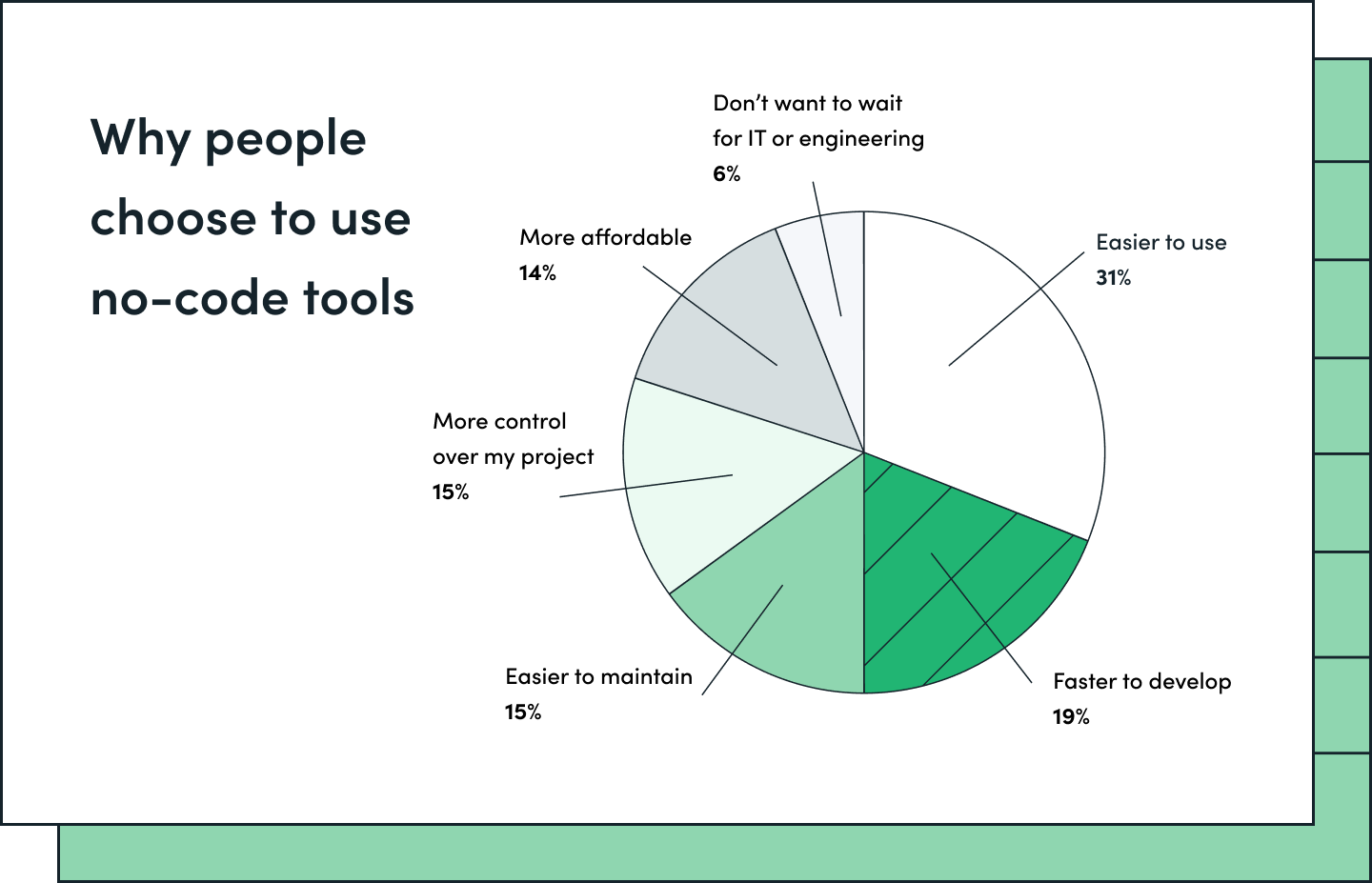Now more than ever, colleges and universities need to be able to quickly adapt to the ever-evolving digital world. The preferences and abilities of students and staff are changing, and if your processes and systems don’t keep up, you will begin to see your recruitment and retention efforts fail across the board.
Whether your school serves hundreds, thousands, or tens of thousands of students, you need to prioritize a digital-first experience. A recent study by Great State found that 91% of students believe their university’s digital services should be as strong as face-to-face lectures and life on campus.
But it’s not only students who expect digital innovation and ease. Our State of Digital Maturity report found that 72% of workers think inefficient processes negatively impact their job.

When organizations lack digitization and automation, employees report higher levels of frustration, stress, and dissatisfaction.
Yet higher ed institutions are struggling to deliver digitization fast enough. What can be done to conquer this digital paradox? Add no-code to your college or university’s tech stack.
The Power of No-Code in Higher Education
Creating the best digital experience starts with your internal processes, efficiencies, and tools. Achieving your goals, regardless of department or role, depends greatly on having the right tools and processes in place. But if you’re faced with tight budgets and limited resources, it might seem impossible to digitize, automate, and innovate.
Yet no-code workflow automation allows higher education institutions to do just that. No-code is changing the way people work—from automating repetitive, time-consuming tasks to building entirely new processes, products, and applications in just days versus months.
Investing in no-code tools at your school can enable workers of all technical levels to achieve great results with less time, money, resources, and infrastructure. Here’s how no-code workflow automation can benefit every team across your campus, from student services and recruitment to HR and facilities.

1. Accelerate Turnaround Time
As a higher education professional, your life revolves around semester schedules and tight deadlines. You don’t have time to waste when trying to develop a new project or improve an existing process.
While traditional software may require months to learn the system, onboard employees, and develop, no-code tools take nowhere near this time to implement. Many higher education institutions can get up and running with no-code tools in mere weeks. In fact, our No-Code Economy survey revealed that 50% of people choose to use no-code tools because they are easier to use and faster to develop than traditional software.

When your next project requires a quick turnaround time, you’ll be ready. Whether it’s spinning up processes for alumni engagement or streamlining how departments collect, store, and share student data, no-code tools can help you get from idea to solution much faster. Because many no-code tools easily integrate with common higher education systems, you’ll be able to connect them to the most important tools in your campus’s tech stack.
2. Minimize Reliance on IT
When your IT team is stretched thin and serving several departments across your institution at once, it can be difficult to get in their queue. Yet many complicated software systems require coding, which means IT has to help get your projects off the ground.
With no-code, you no longer have to rely on your IT team to build, test, or launch new tools, apps, or workflows; employees of all technical skills can quickly learn how to use them on their own. Plus, you can easily make edits and adjustments and see them in real time.
Your IT team will be thankful when you approach them about adding no-code tools to your campus tech stack. By enabling your team or department to be more autonomous, IT can focus their time on the technical tasks that require their expertise and abilities.

3. Simplify Processes Across Departments
Whether you work on a small or large campus, most educational institutions face issues when trying to share data across departments and schools. From paper forms getting lost through the interdepartmental mail to inconsistencies with how data integrates across tools, it can be incredibly difficult to streamline cross-campus processes. This can create dangerous data silos that impact productivity and information management.
Jacob Melendy, a Solutions Manager at Servio Consulting, understands how this issue impacts higher education institutions. He’s consulted with hundreds of schools on how to streamline higher education workflows using no-code tools. Below, he shares the dangers of working in silos, as well as how no-code workflow automation can simplify processes across departments—without a huge budget or IT team.
As Jacob mentioned, working in silos leads to poor data management, inefficient systems, and loads of manual work. No-code tools can help minimize, and even eliminate, many of these issues. Because no-code software can be used by employees of all skill levels and technical knowledge, it can easily fit into any department’s tech stack. This enables you to rely on one tool to streamline processes and workflows across many departments. No more paperwork, manual data entry, or complicated systems to learn.
Read Next: How a University-Wide Platform Can Solve Your Higher Education Data Issues
4. Control Workflows from Start to Finish
When you need to rely on others to get your work done, it can create huge bottlenecks that are mostly out of your control. From relying on IT to implement a tool or update an integration to awaiting approval from a manager or tracking down paperwork, plenty of roadblocks can impact your productivity.
No-code software puts the power to build in your hands, allowing you to update a web page, digitize assets, create robust workflows, and collect data. With a tool like Formstack, you can oversee the entire workflow from start to finish, enabling you to view, adjust, and fix any issues or bottlenecks in real time. You can’t do that with paper processes, something Kevin James, Director of Fiscal & Administrative Affairs at St. John’s University understands firsthand:
With no-code tools, you can quickly adapt as the needs of students, staff, and faculty change without ever submitting a support ticket to IT. Easily automate many of your most tedious tasks, such as reminding deans about approvals, automating eSignature reminders to faculty, or sending students notifications upon completion of an application.
Start Using No-Code at Your College or University
Every team across your campus can reap the benefits of no-code workflow automation, from student services and recruitment to HR and facilities. With a tool like Formstack, you can easily build fully automated education workflows that address the evolving needs of students, faculty, and staff without requiring a massive budget, timeline, or IT team.
Ready to start automating your higher ed workflows? Get real-life examples and step-by-step guidance with our Workflow Inspiration Guide for Higher Education Automation.











